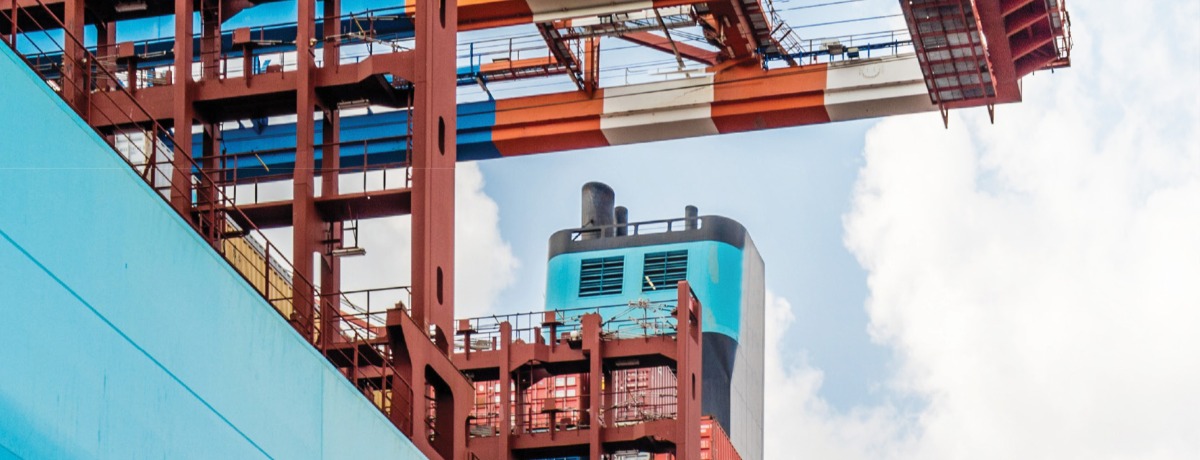Few American brands are as iconic as Harley-Davidson. Apple is just as popular, but at age 42 it’s a relative upstart. GE is equally venerable, but it’s ailing. Not so the Wisconsin-based maker of distinctive motorcycles. Founded in 1903, it stands nearly alone as a fabled company that has remained vibrant for more than a century. During his presidential campaign, Donald Trump repeatedly invoked Harley as a proud example of American manufacturing prowess. The full story is considerably more complicated. Yes, Harleys are assembled in the U.S. But some are partly manufactured and assembled in plants around the world. (The company is currently shutting down a plant in Kansas in response to waning domestic sales, while ramping up production in Thailand to supply the growing Asian market.)
When President Trump introduced new tariffs on imported steel and the European Union responded with its own surcharges on American imports, Harley—noting that the levies could add millions of dollars to its cost structure—announced it’s considering making more of its products overseas to serve European markets. This was met with presidential disdain. “Surprised that Harley-Davidson, of all companies, would be the first to wave the white flag,” Trump tweeted in June. Yet the motorcycle maker is hardly alone. Globalization, frictionless intermodal transport systems, and lower international barriers to commerce in recent decades have led to increasingly far-flung supply chains for products as varied as consumer electronics and airplanes. Those carefully orchestrated systems, however, have been threatened of late by any number of disruptive events—extreme weather, Britain’s exit from the EU, currency fluctuations, and the 2011 Fukushima nuclear disaster in Japan.
Corporate supply chains may be in for their toughest stress test yet with the Trump administration’s erratic trade policies, as the world’s largest economy—the country that essentially designed the international trading system—threatens to tear up multilateral agreements and impose tariffs on even its closest allies. The burgeoning global trade war now affects some 10,000 products.
“Nobody knows what to do about anything anymore. It has completely upended all policy planning,” says Laura Baughman, an economist and president of Trade Partnership Worldwide, a consulting group based in Washington, D.C. “I joke—though it’s not really a joke anymore—that public companies are going to have to put into their 10-K [annual report] a new risk factor, which is the president himself, because even his closest policy advisors don’t know from one day to the next what’s going to happen.”
In a recent policy brief, Baughman’s organization examined the potential impact of a 25 percent tariff on automobiles, SUVs, light trucks, and other vehicles and parts. The economists estimated the tariffs would result in a net loss of more than 400,000 American jobs and add about $6,400 to the price of an imported $30,000 car. Putative earthquakes like these are causing supply-chain managers to scramble, especially given that they come against a backdrop of fundamental disruptions already taking place. “The possibility of dramatic changes in trade policy comes at a time when the economics of global manufacturing are already shifting in complex ways as manufacturing technologies advance and labor costs rise in China and other traditionally low-cost countries,” a Boston Consulting Group policy paper recently noted. “These factors on their own are significant enough to prompt many manufacturers to reconsider their global supply-chain strategies. The prospect of a major overhaul of trade agreements among leading economies makes such a reassessment urgent.”
Resilience Above All
That sense of urgency can’t be emphasized strongly enough. Despite the Big Data revolution, “most companies aren’t very good about turning that data into real-time, usable information,” says Steven Bowen, a prominent supply-chain consultant and author of Total Value Optimization—Transforming Your Global Supply Chain Into a Competitive Weapon. Building resilient supply chains is essential in a world of unexpected shocks and constant change, he adds. And it’s not just extreme weather or the sudden imposition of tariffs that drive these changes; even developments that don’t get much notice in the U.S. can have a vast ripple effect. “The sudden deflation of the Brazilian currency in 2017 created a lot of disruptions,” Bowen notes.
“Nearly every supply chain has a weak link—sometimes there are several,” Bowen has written. “Knowing where those weak links are, and at which points they break down, is the first step toward competitive success. Regardless of the origin of the stress points, stress-testing the supply chain is an important but often overlooked part of supply-chain management. The supply chain may look good on paper, but at what point, and under what circumstances, will it break down?”
Building supply chains of greater resilience requires several components, including creating commodity contingencies (such as the hedging strategies airlines use to soften the impact of wild swings in the price of jet fuel), diversifying supply sources for crucial components, and building in redundancy. Baughman, the economist, regards Apple as a case in point. “We’ve seen that some suppliers they were counting on can’t deliver,” she says. “Either they have a fire or production problems they can’t get past. So Apple is now realizing that it has to have more than one source for all its parts and pieces.”
Put to the Test
Bowen maintains that every organization with a supply chain should regularly submit it to a stress test, not unlike what federal regulators have done with banks in the wake of the Great Recession. “But I’d say it’s not the norm to do that,” he says. “The best companies are doing it, but they may not be stress-testing the whole system, including their suppliers. Companies like Amazon and Walmart have the clout to do stress-testing with their suppliers, but most do not.”
He emphasizes that “you don’t have to be big to be smart.” Sometimes large companies get lazy, he explains, assuming that their large-volume purchasing gives them the kind of financial heft that magically solves all supply-chain problems. But they often discover otherwise. Instead, he counsels, firms should engage in “predictive analytics,” something smaller organizations can do just as well as larger ones. Some experts, in fact, are predicting that such analytics, powered by ever-more-sophisticated artificial intelligence, will soon completely replace humans in managing supply chains. In a recent Harvard Business Review article, a trio of industry experts observed that “new digital technologies that have the potential to take over supply-chain management entirely are disrupting traditional ways of working,” adding that current supply-chain management systems may be obsolete in just five to 10 years.
“The trend is clear: Technology is replacing people in supply-chain management—and doing a better job,” the three contended. “It’s not hard to imagine a future in which automated processes, data governance, advanced analytics, sensors, robotics, artificial intelligence, and a continual learning loop will minimize the need for humans.”
Regardless of what the future holds, building the right system is a delicate balancing act. “Global supply chains can save you a lot of money,” Baughman says. “But they can cost you even more.”


















